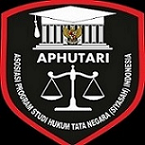Konseptualisasi Kompilasi Hukum Ekonomi Syariah Terhadap Praktik Hutang Piutang Antara Toke Ikan Dengan Nelayan
Abstract
Debt is an activity of borrowing money or goods between people in need (debtors) and people who have money or goods (creditors) and then lending them and later the money or goods will be returned in the same form and amount. This is similar to what happened at the Help Group Warehouse in Sibolga City where when fishermen want to go sailing to catch fish, the fish toke will finance or give debts to fishermen according to what is needed when they want to catch fish, on the condition that fishermen must sell their catch. to fishermen. toke fish at below market prices. To find out the practices between fishing activities and fishermen in the fishermen's group warehouse, please help in the compilation of sharia economic law. This research is included in empirical research (field research), and the use of a qualitative approach, the data used comes from primary and secondary data, and the research methods of collecting are interviews and documentation. Based on the results of research on the Practice of Receivables from Toke Fish and Fishermen in the Compilation of Sharia Economic Law (Case Study of Warehouses for Auxiliary Fisherman Groups in Sibolga City), the contract agreement was made orally, the debts incurred in the KNTM warehouse in Sibolga City were harmonious and harmonious. receivables and receivables have been fulfilled, then the practice of receivables is legal according to the Sharia Economic Law Compilation. However, the benefits in trade payables that occur in the Sibolga City KNTM warehouse and the existence of conditional debts make the debt unlawful or the debt canceled because there is a withdrawal of benefits in it, this is not permitted.
Keywords
Full Text:
PDFReferences
Referensi
a. Sumber Buku
Ri, Agung. “Kompilasi Hukum Ekonomi Syariah.” Mahkamah Agung 2016.
b. Sumber Jurnal
Sainul Ahmad, ‘Hak Milik Dalam Hukum Islam’, Jurnal Al Maqasid: Jurnal Ilmu Kesyariahan Dan Keperdataan, 6.2 2020.
Ahmatnijar, ‘Paragmatisme Hukum Islam|Ahmatnijar’, Yurisprudentia; Jurnal Hukum Ekonomi, 1.2 2015.
———, ‘Riba Dan Bank Konvensional Kajian Teoritis Dengan Pendekatan Tafsir’, Gastronomía Ecuatoriana y Turismo Local., 1.69 1967.
Harahap, Ikhwanuddin, M.Ag., ‘Pendekatan Al-Maṣlaḥah Dalam Fatwa Majelis Ulama Indonesia (Mui) Nomor 24 Tahun 2017 Tentang Hukum Dan Pedoman Bermuamalah Melalui Media Sosial’, Jurnal Hukum Ekonomi, 3 2017.
Harahap, Nurhotia, ‘Aspek Hukum Dalam Penyaluran Kredit Usaha Rakyat (KUR)’, Yurisprudentia, Jurnal Hukum Ekonomi, 4.1 2018.
Harahap, Risalan Basri, ‘Jurnal Al-Maqasid’, 5.2 2019.
Mustafid, ‘Hukum Perbuatan Roasting Dalam Stand Up Comedy Ditinjau Berdasarkan Ketentuan Syari’At Islam’, Yurisprudentia, Jurnal Hukum Ekonomi, 7.2 2021.
Nasution, Adanan Murroh, ‘Konsep Pasar Yang Islami’, Al-Maqasid: Jurnal Ilmu Kesyariahan Dan Keperdataan, 4.2 2018.
Ri, Agung, ‘Kompilasi Hukum Ekonomi Syariah’, Mahkamah Agung, 2016
Siregar, Sawaluddin, ‘Perspektif Hukum Islam Mengenai Mekanisme Manipulasi Pasar Dalam Transaksi Saham Di Pasar Modal’, Yurisprudentia: Jurnal Hukum Ekonomi, 3.2 2017.
DOI: https://doi.org/10.24952/el-thawalib.v3i5.6201
Refbacks
- There are currently no refbacks.










Jurnal El-Thawalib is licensed under a Creative Commons Attribution-ShareAlike 4.0 International License. Copyright © 2022 Jurnal El-Thawalib All rights reserved.



